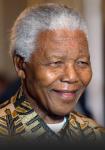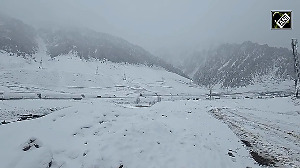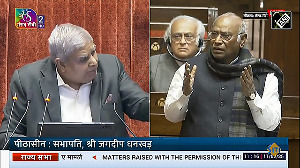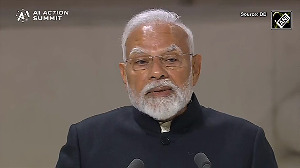Lal Kishenchand Advani's trip to the United Kingdom is turning into a diplomatic triumph for India after the deputy prime minister was received at 10, Downing Street on Monday with the aplomb usually reserved for visiting heads of state.
In part, this is due to London acknowledging Advani as Prime Minister Atal Bihari Vajpayee's sanctioned political successor, but the UK is now also among those countries that recognise and accept India's enhanced stature in the international arena.
The contrast with Pakistan could scarcely be more marked.
President Pervez Musharraf, who is also visiting London later this week, has been unable to secure British approval for a courtesy call on Queen Elizabeth.
A meeting with Blair has been grudgingly agreed to, but there might not be any of the fanfare and warmth evident in Advani's exchanges with British officials.
Before he leaves for home on Wednesday, Advani will have met his opposite number, British Deputy Prime Minister John Prescott, Home Secretary David Blunkett and Foreign Secretary Jack Straw.
In political terms, this is almost an exact replay of Advani's experience in Washington, where he met President Bush and his key political aides.
Advani's rising self-confidence and delight at the way he has been received was evident both at Downing Street and earlier on Sunday night when he addressed NRIs and told them of India's impressive economic progress in recent years.
He reiterated the dual citizenship legislation would be pushed through Parliament by the end of this calendar year.
On Monday, the issue of sending Indian troops to Iraq was high on Blair's agenda.
Like the US, Blair too is keen on India contributing troops to Iraq to help reduce the pressure on American, British and to a lesser extent Polish forces who make up the bulk of the current contingent.
The incentive for India is the prospect of winning lucrative reconstruction contracts that will help to swell the nation's foreign exchange coffers and provide new jobs for both labourers and qualified personnel.
Before the war in Iraq, India had a significant economic presence in Iraq with Indian companies involved in across-the-board investment in businesses ranging from hotels to road building.
Much of this was possible because of New Delhi's good political relationship with the then Iraqi president, Saddam Hussein, who India viewed as a secular and forward looking Arab ruler.
Whether India can maintain its economic and political relationship with Iraq in the political vacuum that has developed following Saddam Hussein's departure remains to be seen.






 © 2025
© 2025